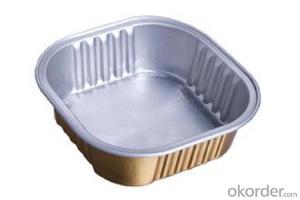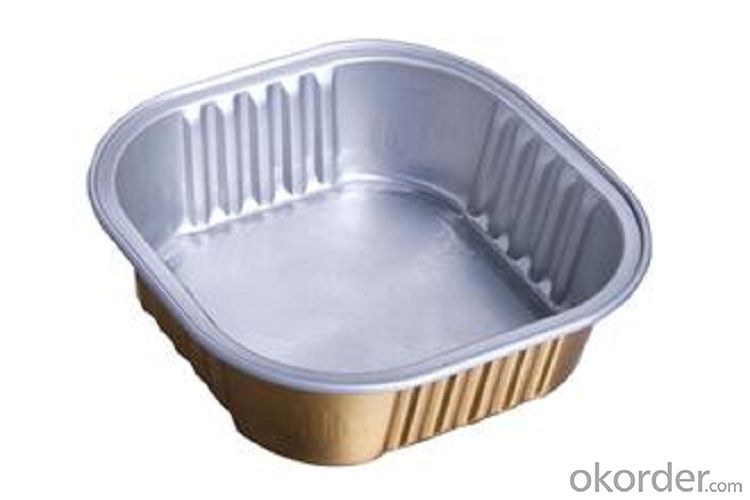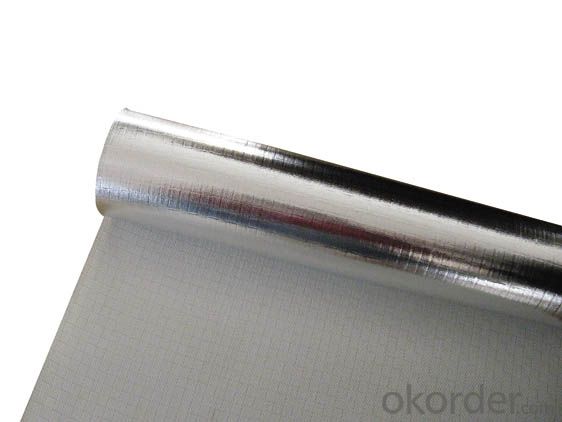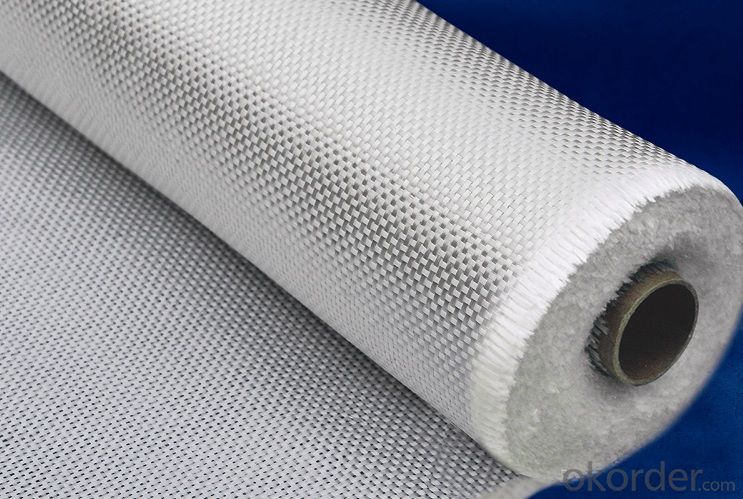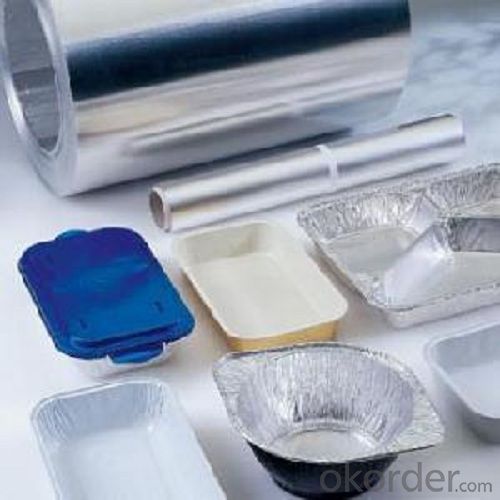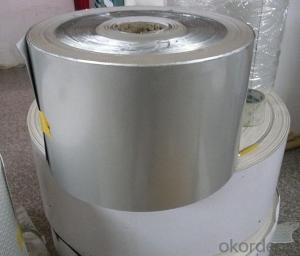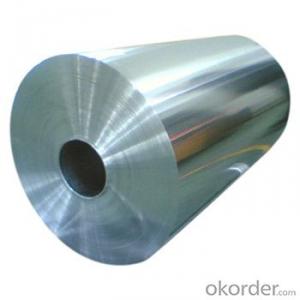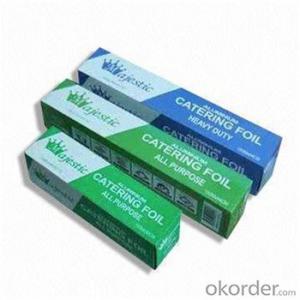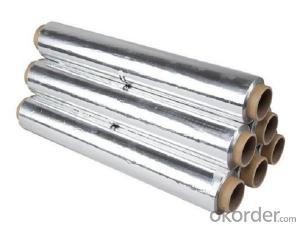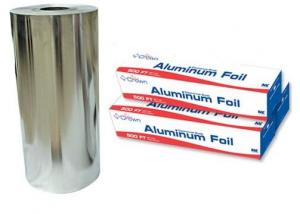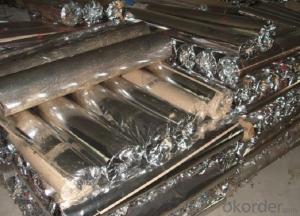Household Aluminum Foil Paper for Food Wrapping
- Loading Port:
- Shanghai
- Payment Terms:
- TT OR LC
- Min Order Qty:
- 20 m.t.
- Supply Capability:
- 3000 m.t./month
OKorder Service Pledge
OKorder Financial Service
You Might Also Like
l Product Description:
| Product speciafication | aluminium foil |
| Length | 3-300m |
| Width | 10-60cm |
| Thinkness | 8-24micron |
| Packing | box+out carton or PP bag +out carton |
| Certificate | FDA, SGS, ITS |
l Packaging & Delivery
Packaging detail: Standard seaworthy exporting carton, Wooden pallets, waterproof paper and plastic coverage or or as customer's requirements
Delivery detail: about 25 days from received original L/C or advance payment
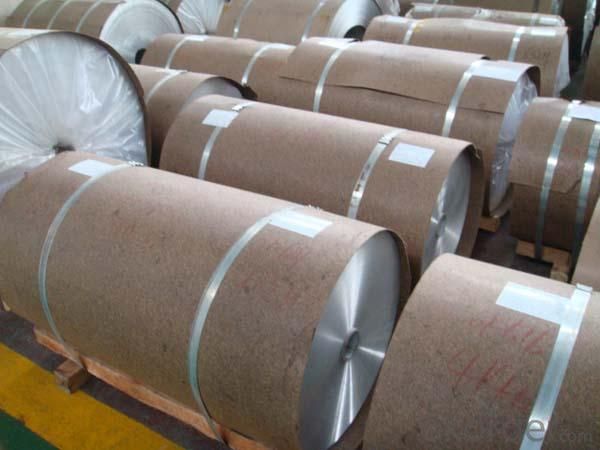
l Company Profile
CNBM International Corporation, China National Building Materials (Group) Corporation, is one of the largest companies in China building material & equipment industry, with 42,800 employees and sales in 2005 of US Dollar 4.395 billion. In 2006, China National Building Material Company Limited was listed on Hong Kong Stock Market with the stock code as 3323.
The business scope of CNBM covers from manufacturing and sales of a series of building materials to scientific research and design, import and export trade. In many of these fields, CNBM is playing the leading role.
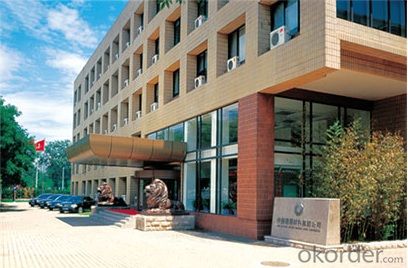
l Product Images
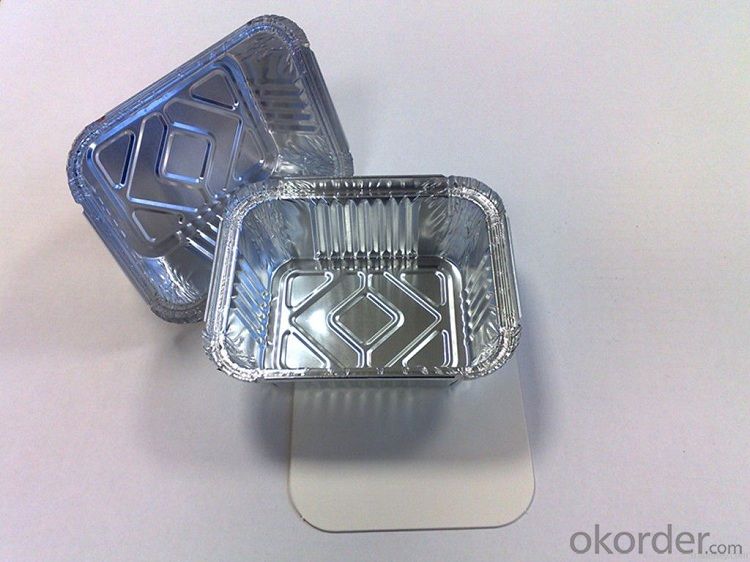
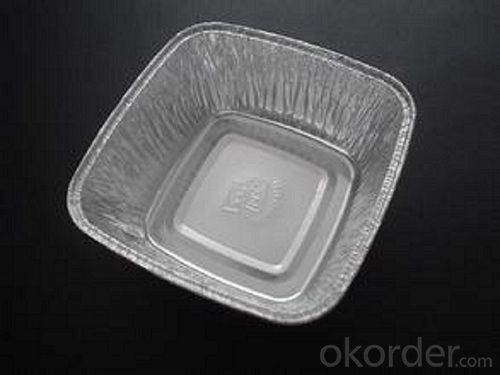
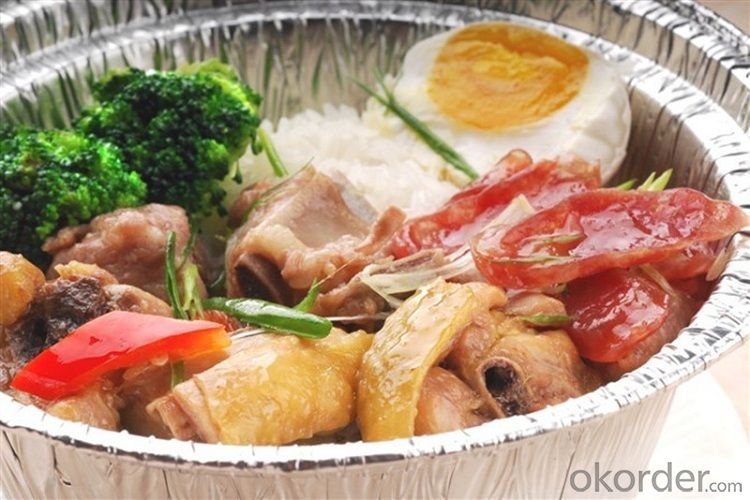
l FAQ
Q: Do you provide free samples?
A: Yes, free samples will be sent to you on freight at destination.
Q: Can I get your latest products catalogue?
A: Yes, it will be sent to you in no time.
Q: What is the MOQ?
A: 20 tons
Q: What are your payment terms?
A: We accept L/C, T/T.
l Contact Us
Email:service@okorder.com
- Q: Can aluminum coils be used for architectural applications?
- Yes, aluminum coils can be used for architectural applications. Aluminum is a versatile and lightweight material that is commonly used in construction due to its durability, corrosion resistance, and ease of installation. It can be formed into coils and used for various architectural elements such as roofing, cladding, facades, gutters, and window frames.
- Q: How do I deal with too much aluminum powder when the aluminum strips are divided?
- For example, the wind speed control did not meet the requirements, or not in accordance with the explosion-proof ventilation system requirements set, including pipeline setting, setting, filter series parallel is the selection of explosion-proof, whether Mars and extinguishing measures.
- Q: I am so confused right know. I want to cook something using an aluminium foil. Is the reflective side supposed to be inside or outside?
- As everyone who's answered has already told you, Saran Wrap is clear plastic. It's used to wrap left-overs and sandwiches in...although it's not totally air-tight, it comes close to it. Aluminum foil is used to cover things while you're baking or roasting them (like a turkey breast or lasagna) or it can be used on the bottom of a cookie sheet or oven rack to catch spills. It helps to radiate heat. You can also use aluminum foil to wrap things in for refrigeration. It just doesn't create the seal that Saran Wrap does.
- Q: How do aluminum coils contribute to fire safety?
- Aluminum coils contribute to fire safety by being non-combustible and having a high melting point. This means that in the event of a fire, aluminum coils will not burn or contribute to the spread of flames. Additionally, they are often used in fire-resistant building materials and electrical wiring due to their ability to dissipate heat efficiently, reducing the risk of fire hazards.
- Q: Is it possible to construct furniture or tables using aluminum coils?
- <p>Yes, aluminum coils can be used to make furniture or tables. Aluminum is a versatile material known for its strength, durability, and lightweight properties. It can be easily bent and shaped into various forms, making it suitable for furniture construction. Aluminum coils can be used to create the frame or support structure of tables and other furniture items. They are also resistant to corrosion and require minimal maintenance, making them a popular choice for outdoor furniture and modern interior designs.</p>
- Q: Are there any limitations on the embossing of aluminum coils?
- There exist several limitations when it comes to embossing aluminum coils. One limitation pertains to the thickness of the aluminum coil. Thicker coils, in general, pose more difficulty during the embossing process due to the increased force required to achieve the desired pattern. Furthermore, if the thickness is already close to the upper limit for embossing, the embossing process may cause the coil to stretch or distort. Another limitation concerns the complexity of the embossing design. Elaborate or intricate patterns can prove to be more challenging to achieve on aluminum coils, particularly if they possess a lower gauge or thickness. In such cases, the embossing process may not be capable of accurately reproducing intricate designs, resulting in a less defined or distorted pattern. The size of the aluminum coil is also a potential limitation. If the coil is excessively large, achieving even embossing across the entire surface may prove difficult. This could lead to inconsistencies in the embossed pattern or the application of uneven pressure to the coil during the embossing process. Lastly, the type and quality of the aluminum can restrict the embossing capabilities. Different alloys or grades of aluminum possess varying levels of malleability and resistance to embossing. Certain alloys may be prone to cracking or deforming during the embossing process, thereby limiting the range of patterns that can be achieved. Overall, the embossing of aluminum coils is subject to limitations such as thickness, design complexity, size, and aluminum quality. It is crucial to consider these factors when embossing aluminum coils in order to attain the desired outcomes.
- Q: Is it possible to use aluminum coil for creating a sculpture?
- <p>Yes, you can use aluminum coil to make a sculpture. Aluminum is a versatile material known for its strength, lightweight, and malleability, which makes it suitable for sculpting. It can be bent, twisted, and shaped into various forms. When working with aluminum coil, you can use tools like pliers, wire cutters, and a metal bender to manipulate the coil into the desired sculpture shape. Ensure you take safety precautions, such as wearing gloves and eye protection, due to the sharp edges and the risk of injury from handling metal.</p>
- Q: Are aluminum coils easy to install?
- Yes, aluminum coils are generally easy to install. They are lightweight and flexible, making them convenient to handle and position during installation. Additionally, they can be easily cut and shaped to fit the desired space, making the installation process relatively straightforward for experienced professionals or DIY enthusiasts.
- Q: Are there any restrictions on the export or import of aluminum coils?
- The export or import of aluminum coils is subject to restrictions that vary depending on the country and specific regulations in place. These restrictions encompass various measures such as export licenses, quotas, and tariffs. Export licenses are often necessary to comply with export control regulations, particularly for sensitive industries or countries. Quotas restrict the quantity of aluminum coils that can be exported or imported within a specific timeframe. Tariffs, on the other hand, involve taxes imposed on imported goods, impacting the cost and competitiveness of aluminum coils in the market. Furthermore, additional restrictions may be imposed concerning quality standards, environmental regulations, or trade agreements between countries. Therefore, it is crucial for individuals or businesses engaged in the export or import of aluminum coils to conduct thorough research and gain a comprehensive understanding of the specific restrictions within their respective jurisdictions. Seeking guidance from legal or trade experts can facilitate navigation through these restrictions and ensure compliance with applicable laws.
- Q: Can aluminum coils be used in high-temperature applications?
- Yes, aluminum coils can be used in high-temperature applications. Aluminum has a high melting point of 660 degrees Celsius (1220 degrees Fahrenheit), which makes it suitable for various high-temperature environments. Additionally, aluminum has excellent thermal conductivity, allowing it to efficiently transfer heat, making it a popular choice for heat exchangers and HVAC systems. However, it is important to note that the specific application and temperature requirements should be considered, as extremely high temperatures beyond the melting point of aluminum may require alternative materials.
Send your message to us
Household Aluminum Foil Paper for Food Wrapping
- Loading Port:
- Shanghai
- Payment Terms:
- TT OR LC
- Min Order Qty:
- 20 m.t.
- Supply Capability:
- 3000 m.t./month
OKorder Service Pledge
OKorder Financial Service
Similar products
Hot products
Hot Searches
Related keywords
